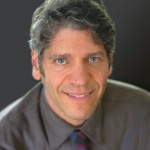Below is an excerpt from a chapter titled “Making Our Lives Count,” written by Paul Loeb, from the book “Soul of a Citizen” (Edited by St. Martin’s Griffin).
In the personal realm, most Americans are thoughtful, caring and generous. We try to do our best by family and friends. At times we’ll even stop to help another driver stranded by a roadside breakdown or give some spare change to a stranger. But too often, a wall separates each of us from the world outside, and from others who’ve likewise taken refuge in their own private sanctuaries — what we might call the gated community of the heart. We’ve all but forgotten that public participation is the very soul of democratic citizenship.

The reason many of us retreat from social involvement is not that we think all is well with the world. Rather, what leaves too many of us sitting on the sidelines is what psychologists call “learned helplessness.” Society has systematically taught us to ignore the ills we see and leave them to others to handle. We’re led to believe that if we can’t instantly solve every one of these problems, we shouldn’t bother to become socially active at all — an outlook that’s helped create the difficult situation we now face. Our impulses toward involvement face a culture that demeans idealism, enshrines cynicism and makes us feel naïve for caring about our fellow human beings or the planet we inhabit. We wonder whether what we might try to do in the public sphere will simply be in vain.
For many, civic withdrawal has become the norm. Obama’s campaign challenged this trend by inspiring vast numbers of previously disengaged citizens to become engaged. But even then, more than a third of potentially eligible Americans ended up staying home, and too many of his once-passionate volunteers have mostly been watching from the sidelines ever since, doing little beyond signing online petitions or letters.
Overcoming our impulses toward withdrawal requires courage. It requires learning the skills and developing the confidence to participate. It also requires creating a renewed definition of ourselves as active stakeholders. The importance of this direct participation was expressed thousands of years ago by the ancient Greeks. In fact, they used the word “idiot” for people incapable of involving themselves in civic life. Now, the very word “political” has become so debased in our culture that we associate it almost inevitably with corruption. We’ve lost sight of its original roots in the Greek notion of the polis: the democratic sphere in which citizens, acting in concert, determine the character and direction of their society. “All persons alike,” wrote Aristotle, should share “in the government to the utmost.” Granted, he wasn’t dealing with Exxon, Goldman Sachs or Monsanto. But dealing with unimaginably powerful and arrogant institutions requires citizen participation all the more.
Reclaiming our political voice requires more than just identifying problems.
This is not to say that change is easy or that everyone is in an equal position to bring it about.
Whatever our situations, we all face a choice. We can ignore the problems that lie just beyond our front doors; we can allow decisions to be made in our name that lead to a meaner and more desperate world. We can yell at the media and complain about how our leaders have let us down, using our bitterness as a hedge against involvement. Or we can work to shape a more generous common future. While the latter path has no guarantees, it is also the sole path that offers real hope.
Paul Loeb is an author of three books. He will speak at 7 p.m. Monday in Textor 102 about activism.







